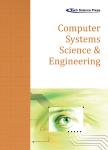Community Discovery Algorithm Based on Multi-Relationship Embedding
作者机构:Software CollegeNortheastern UniversityShenyang110169China
出 版 物:《Computer Systems Science & Engineering》 (计算机系统科学与工程(英文))
年 卷 期:2023年第46卷第9期
页 面:2809-2820页
核心收录:
学科分类:08[工学] 0835[工学-软件工程] 081202[工学-计算机软件与理论] 0812[工学-计算机科学与技术(可授工学、理学学位)]
基 金:This work was supported by the Key Technologies Research and Development Program of Liaoning Province in China under Grant 2021JH1/10400079 the Fundamental Research Funds for the Central Universities under Grant 2217002
主 题:Network representation learning multi-relationship node encoder attribute information
摘 要:Complex systems in the real world often can be modeled as network structures,and community discovery algorithms for complex networks enable researchers to understand the internal structure and implicit information of *** community discovery algorithms are usually designed for single-layer networks or single-interaction relationships and do not consider the attribute information of ***,many real-world networks consist of multiple types of nodes and edges,and there may be rich semantic information on nodes and *** methods for single-layer networks cannot effectively tackle multi-layer information,multi-relationship information,and attribute *** paper proposes a community discovery algorithm based on multi-relationship *** proposed algorithm first models the nodes in the network to obtain the embedding matrix for each node relationship type and generates the node embedding matrix for each specific relationship type in the network by node *** node embedding matrix is provided as input for aggregating the node embedding matrix of each specific relationship type using a Graph Convolutional Network(GCN)to obtain the final node embedding *** strategy allows capturing of rich structural and attributes information in multi-relational *** were conducted on different datasets with baselines,and the results show that the proposed algorithm obtains significant performance improvement in community discovery,node clustering,and similarity search tasks,and compared to the baseline with the best performance,the proposed algorithm achieves an average improvement of 3.1%on Macro-F1 and 4.7%on Micro-F1,which proves the effectiveness of the proposed algorithm.



